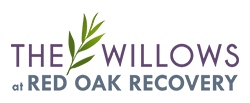Opioids can lead even those who have never used illegal drugs to develop addictions. Therefore, preventing addiction to drugs starts with doctors regulating the use of these opioids. However, they also must encourage their patients with signs of opioid addiction to get help as soon as possible. If you or a woman you love is battling an opioid addiction, please call The Willows at Red Oak Recovery® today at 828.518.6941 for more about the most addictive opioids or opioid addiction treatment.
What Are the Most Addictive Opioids?
Most drugs in the opioid class, including legal pain-relieving prescriptions, are highly addictive. Examples of such medications include:
Morphine
Morphine is a natural substance and the first opioid drug. It can be crushed, snorted, smoked, taken orally, or injected. Doctors still prescribe it for pain in the U.S., and it’s the foundation for all other opioids.
Heroin
Quite illegal, heroin delivers a quick, short-lived high and quickly leads to needing more to achieve the same effect. Many users start by misusing painkillers.
Fentanyl
Fentanyl is the strongest opioid used in U.S. medicine and far more potent than heroin or morphine. Less than a milligram can cause a fatal overdose. Like heroin, it acts quickly but wears off fast, making it a common substitute. Street fentanyl is often added to other drugs, increasing its danger.
Methadone
Methadone was created as a morphine substitute and is often used in addiction treatment. Its slow release and effects lasting up to 24 hours help treat opioid dependence without causing the euphoria of heroin or morphine. However, it must be taken under medical supervision to avoid addiction.
Vicodin
Vicodin is one of the most abused prescription painkillers and a leading cause of overdose. It combines hydrocodone, which acts like morphine, with acetaminophen. Despite this mix, it is highly addictive.
Oxycodone
Oxycodone is more addictive than morphine and a leading cause of overdoses in the US. This slow-release opioid lasts 12 hours, but misuse (like crushing and snorting) makes it stronger, mimicking heroin and fentanyl.
How Opioid Use Turns into Addiction
Unfortunately, women typically have a greater likelihood of getting a prescription for an opioid from their doctor. However, many women don’t talk about opioid addiction. Regardless of the legality of a drug, addiction can still occur and cause severe life disruptions.
Opioid addiction occurs from drugs in this class due to the way they interact with the brain. Opioid drugs cause a rapid release of endorphins in the brain, which produce a feeling of extreme happiness. Then, the brain’s reward center experiences a boost from using the drugs. The euphoria and the rewarding sensation make the individual more likely to want to use the drug again. However, the person builds intense cravings and tolerance for lower amounts of the drug with regular use. Therefore, they need to take higher doses or more potent medicines to experience the same happiness and rewarded feeling.
Some women who take prescription opioid drugs may progress to illegal alternatives as they develop a tolerance for their medications. Heroin and some synthetic opioids are examples of more potent, illicit opioids. Moreover, women who take these have a greater chance of overdosing due to these drugs’ extra potency. An overdose on an opioid could lead to death.
What to Do to Prevent Opioid Addiction
To prevent opioid addiction, doctors have a responsibility to monitor patients’ prescriptions. For example, they may need to find alternatives to opioids for pain relief or choose other long-term pain management options. Doctors should also watch for signs of tolerance, including patients refilling prescriptions early or too often. Patients with these signs need a referral to an opioid addiction treatment center.
Individuals taking opioids should watch out for signs of dependency or addiction, including needing more medication to feel relief and feeling withdrawal symptoms when skipping a dose. If these signs appear in yourself or a loved one, seek a substance use treatment program for help.
FAQs About Opioids
Why are opioids addictive?
Opioids are highly addictive because they affect the brain’s reward system. They bind to opioid receptors, reducing pain and releasing large amounts of dopamine, a chemical linked to pleasure. This surge creates euphoria, leading people to seek the substance repeatedly.
How addictive is OxyContin?
OxyContin, a brand name for the opioid oxycodone, is highly addictive due to its formulation and potency. It’s a time-release medication that manages severe pain over extended periods. However, when misused, such as by crushing the pills to bypass the time-release mechanism, it delivers a rapid and intense euphoric effect. OxyContin is highly potent and prone to misuse.
Treatment Options for Those with Opioid Addiction
For opioid addiction, treatment may include various therapies to mitigate the physical and mental effects of opioid use. At The Willows at Red Oak Recovery®, we help women with opioid addictions to restore balance and healthy behaviors to their lives with holistic treatments that include:
- Yoga therapy
- Meditation therapy
- Cognitive-behavioral therapy (CBT)
- Coping skills education
- Trauma therapy
- Dual diagnosis treatment programs
These treatment options can help women learn to handle the mental impacts of quitting opioid use. Since many who have prescription pain medication addictions may also experience pain by quitting opioids, they also need ways of handling the pain without the drugs. Furthermore, our programs take an individualized approach to care. Therefore, each woman gets a treatment plan suited specifically to her needs and recovery goals.
Contact The Willows at Red Oak Today
Women with opioid addiction fight a battle that they may not win alone. However, with help from our expert addiction recovery staff and our healing environment, recovery from the most addictive opioids can happen. Learn about getting help for yourself or a loved one here at The Willows at Red Oak near Asheville, NC. Use our convenient online contact form or phone us today at 828.518.6941. We have the resources to help young women to break out of opioid addiction and find healing for their body and mind.




